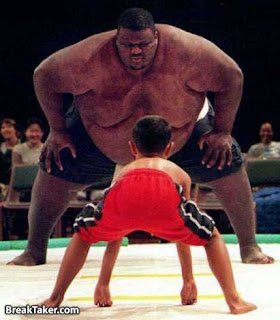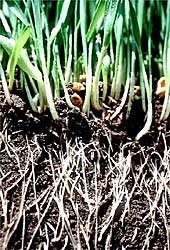
I never gave much thought or did much research into the greater impact my small choices would have on the environment or the economy at large. Why? "One person can only do so much", I'd shrug. I didn't see that my little ways could make much of a big difference beyond the four walls I inhabited.
Even before prices started trending upward and the economy spiraling downward, my husband and I had been discussing sustainable living and implementing greater measures of it here in our home and on our land. Our motive? It is just the right thing to do. Again, we didn't really consider an impact beyond the borders of our property.
So, what has changed? The longer I live in a small rural community, the more I realize that our seemingly small choices add up--not only in our own bank accounts, but for our local economies. The more I've read and studied on sustainable living over the past few weeks, I realize that the ripples from one well-thrown pebble continue out beyond town and county, gaining momentum as they merge with the ripples from others, until our national economy is affected as well.
In case you doubt whether small lifestyle changes have a significant cumulative impact, consider these examples:
- Kicking a daily soda habit can save you $130 a month. That's a savings of $1,560 over a year.
- Cutting your daily shower to 10 minutes from 15 minutes will save you $102 a year.
- Brewing your own cup of coffee instead of picking up a latte at Starbucks will save you
$912 annually. A tall latte at the local Starbucks runs about $3 a cup, or $1,095 a year if you go there every day. If you brew your own at home for 50 cents or less per cup, you'll pay a more modest $183. - Preparing your own lunch rather than buying out will save $1,460 to $3,650. If you make lunch from last night's leftovers, you can avoid spending an extra $4 to $10 a day.
- If you can avoid paying for bottled water (at $1 to $1.50 a bottle), you can save at least $5 to $7.50 for each five-day work week. That's a yearly savings of $260 to $390.
- If you replace just one incandescent light bulb with a compact fluorescent one you'll save $6 in electricity costs over a year, according to the EnergyStar program. If you've got 20 bulbs in your house, those savings will start to look even brighter--around $120.
Little things? Perhaps. But these six minor lifestyle changes would put $6,734 per year back in your pocket--a significant impact, indeed. That's bigger than any economic stimulus package the government could ever whip up.
One person can (only) do so much.Never doubt that a small group of thoughtful, committed individuals can change the world. Indeed, it's the only thing that ever has.
~Margaret Mead






